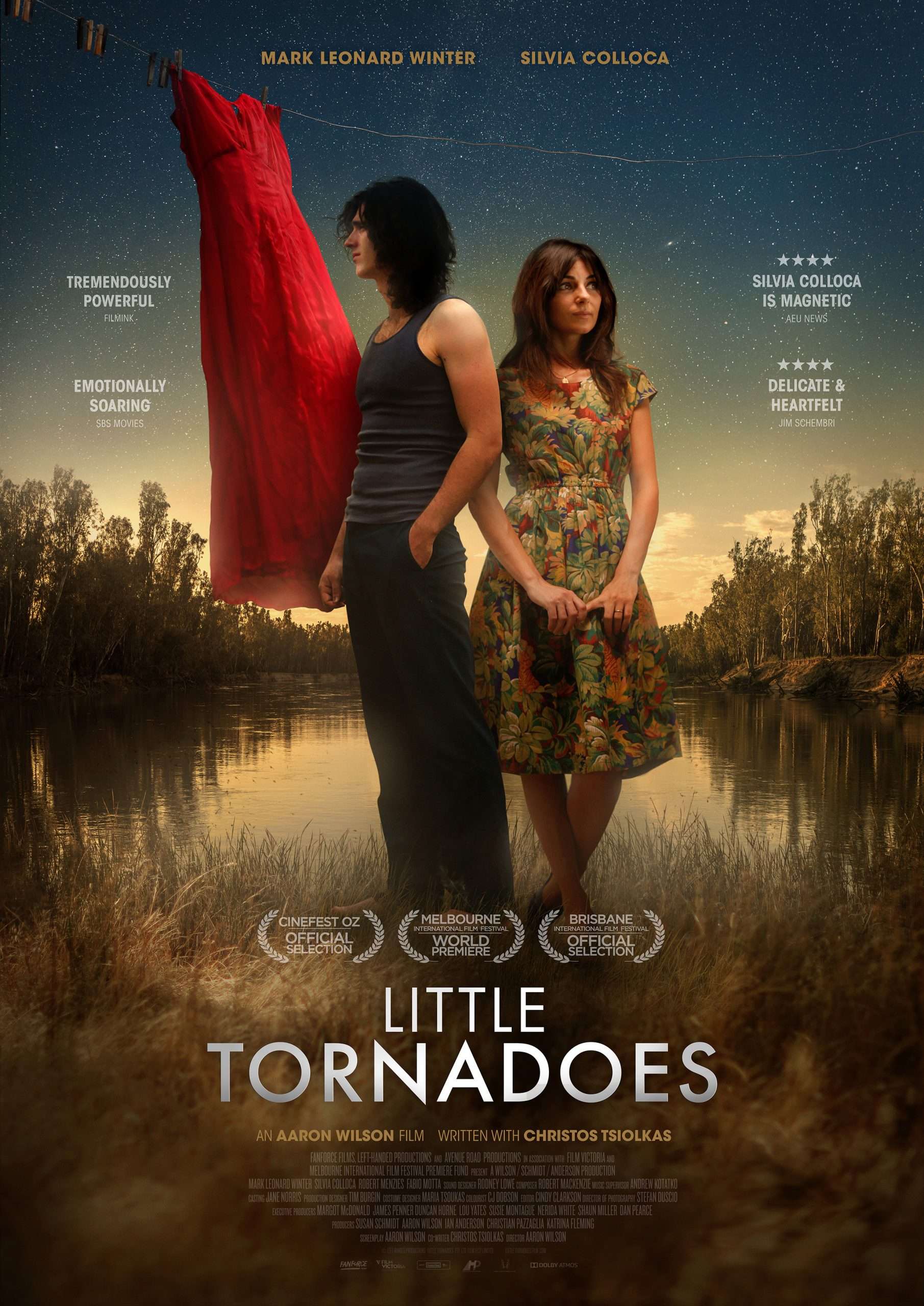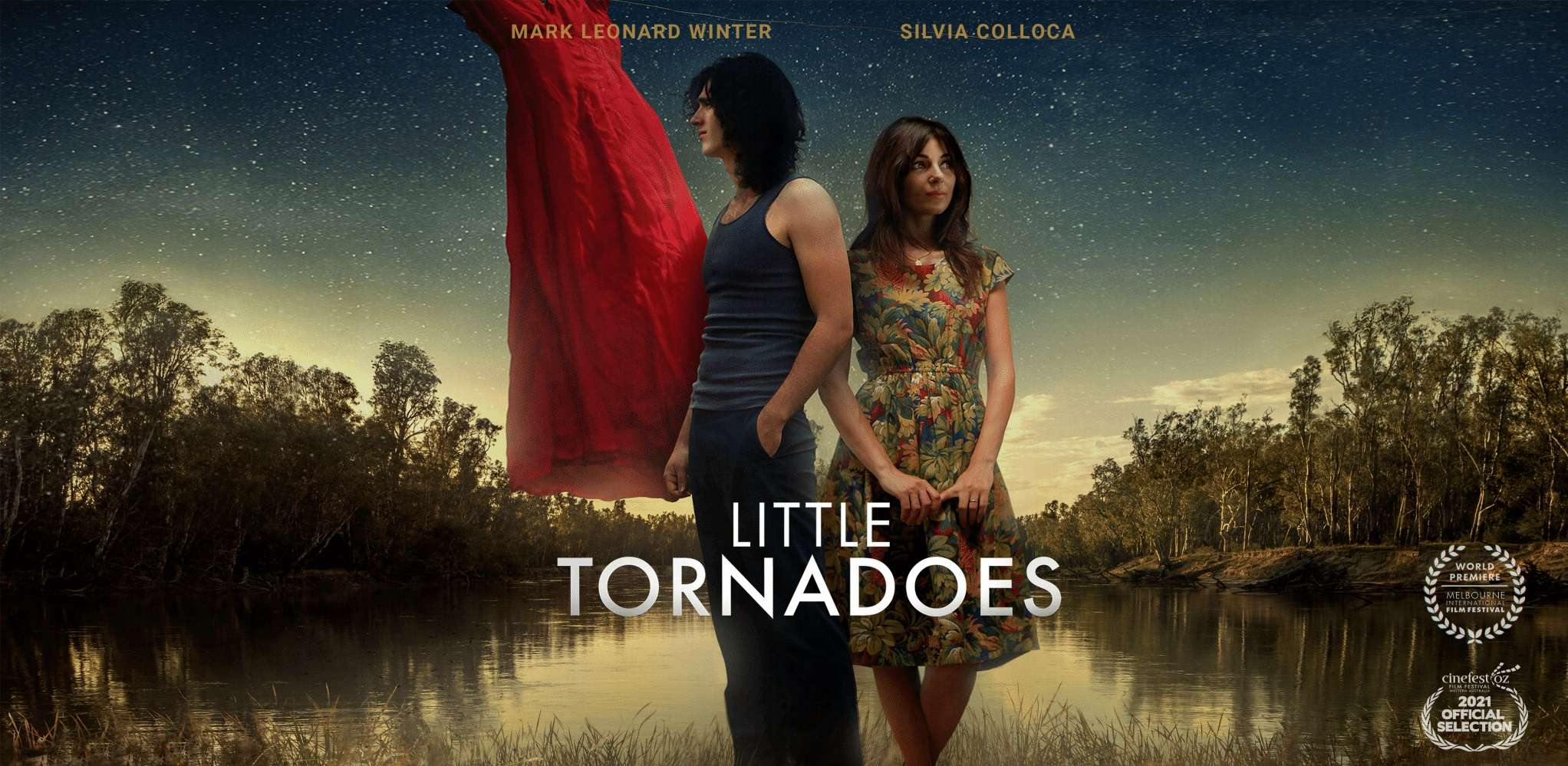Set in 1970 rural Australia, we follow Leo (Mark Leonard Winter), whose life recently changed dramatically when his wife decided to leave him without any notice. Leo is now a single father looking after his two children while working full-time as a metalworker. Naturally, it is not an easy adjustment. Leo hopes his wife will contact him soon and even hopes she will return one day. So far, though, there has been zero communication from her. Leo struggles to find any information about her whereabouts, even when he contacts close family members or friends. While Leo seems generally quiet, we learn that he is filled with frustration and anger, which he expresses by drinking heavily and even attempting to hurt himself in various ways.
One day while working, Leo is approached by a coworker who confronts him, claiming it’s obvious he needs help around the home. The coworker mentions that his sister, Maria (Silvia Colloca), is currently looking for work and could be a great help to him. After lengthy consideration, Leo decides to visit Maria’s workplace and advises he’s been referred to speak with her. She kindly accepts to work for Leo by cooking, looking after Leo’s children at various times and providing extra support around the house. Maria even offers to begin straight away, making Leo somewhat speechless and grateful. Will the support and assistance of Maria fill the void that’s in Leo’s life? Or will Leo continue to struggle to move forward with his life and family?
Little Tornadoes is best described as an Australian, slow-burning drama. It is directed by Aaron Wilson and serves as somewhat of a sequel to Canopy (2013) and is set thirty years later. Thankfully, due to the film’s story and use of flashback footage, it’s not a major requirement to watch Canopy before this film. Little Tornadoes focuses on a new generation of the family from Canopy. This new generation is battling various unexpected challenges and the long-lasting effects of war. Little Tornadoes shows us the impact on war soldiers and how these effects carry on from one generation to another, especially when it comes to family.
Visually, Little Tornadoes is a beautiful-looking film in every way possible. Sceneries such as farms, nature, and characters dealing with their emotions or sharing touching conversations are all wonderful to see. The visuals are an area of the film that cannot be faulted. Performance-wise, everything is generally great here too. The film isn’t always dialogue-heavy, especially the lead, Leo. We are successfully shown the characters’ emotions without much speaking, especially Leo’s hurt, inner pain and sadness. For the most part, the musical score is basic, and sadly, I found nothing overly memorable or touching here. However, the various pop music tracks that are introduced certainly bring the film’s period to life.
While the visuals are a major strength, as well as the performances that show strong emotions and what our characters are dealing with, I found the story to be rather slow-paced. This isn’t going to bother everyone, but even the standard runtime felt far longer than what it is. The film is determined to be more focused on telling the story through visuals and moments of silence, or even instrumental scores playing over a scene without any spoken words. Sure, these moments can feel quite realistic and believable, but at other times, the film feels slower than I would have preferred.
Overall, I enjoyed the touching and heartfelt story about a family dealing with a huge and unexpected life change. I also adored the visuals, and many moments shine wonderfully, such as landscapes, various sceneries, and dramatic moments of characters sharing a conversation or moments with little to no spoken words. Performances, for the most part, are great too. My biggest disappointment with the film is the unmemorable instrumental soundtrack, and the story itself has its moments where it feels slow. As an Australian film, it still has many aspects that are quite impressive and most certainly will be enjoyed by many cinephiles.
5.7/10
2nd May 2022
Written by Peter Walkden



WALKDEN ENTERTAINMENT
PODCASTS ARE AVAILABLE!



0 Comments